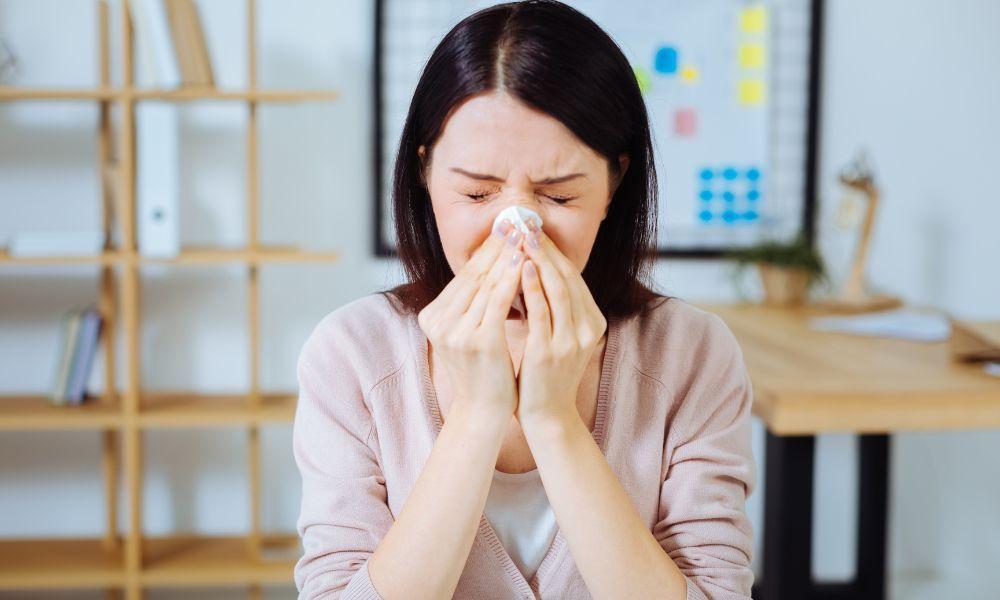If you’re reading this blog post, you may have concerns about respiratory health or have heard about Respiratory Syncytial Virus (RSV) infection. Don’t worry; you’re in the right place. At Be Well Medical, we strive to provide you with the information you need to care for your health. This blog post will discuss RSV infection, its symptoms, treatment options, and practical prevention tips. Let’s dive in!
What is RSV?
RSV, short for Respiratory Syncytial Virus, is a common respiratory virus that affects people of all ages. It is especially prevalent in young children, older adults, and individuals with weakened immune systems. RSV primarily affects the lungs and respiratory tract, causing illnesses ranging from mild cold-like symptoms to severe infections.
Understanding RSV Symptoms
The symptoms of RSV infection can vary depending on the age and overall health of the affected individual. Common signs and symptoms include:
- Coughing: RSV infection often presents with a persistent cough that can be dry or produce phlegm.
- Sneezing and Runny Nose: Many RSV cases exhibit symptoms similar to a common cold, including sneezing and a runny or stuffy nose.
- Fever: Some individuals may experience mild to moderate, although high fever is less common.
- Wheezing: RSV can cause wheezing or difficulty breathing, particularly in infants and young children.
- Fatigue: Feeling tired and lethargic is a common symptom of RSV infection.
- Decreased Appetite: Infants and young children with RSV may experience a decreased appetite and have difficulty feeding.
Diagnosis and Treatment Options
If you suspect you or your loved one has RSV, it is essential to consult a healthcare professional for an accurate diagnosis. Healthcare providers may perform a physical examination, inquire about symptoms, and recommend further tests, such as a respiratory swab.
Although no specific antiviral treatment for RSV exists, treatment focuses on relieving symptoms and providing supportive care. Options may include:
- Over-the-counter Medications: Non-prescription medications, such as pain relievers and fever reducers, can help alleviate discomfort associated with RSV symptoms. However, it’s crucial to consult a healthcare professional before giving any medication to children.
- Hydration: Staying hydrated is essential to help thin mucus secretions and ease breathing. Drink plenty of fluids, and ensure infants receive sufficient breast milk or formula.
- Humidifiers: Using a humidifier or a cool mist vaporizer in the room can help relieve congestion and soothe irritated airways.
- Rest: Getting plenty of rest allows the body to recover and fight off the infection more effectively.
Prevention Tips for RSV Infection
Prevention is always better than cure, especially when it comes to RSV. Here are some practical tips to reduce the risk of RSV infection:
- Frequent Handwashing: Wash your hands thoroughly with soap and water for at least 20 seconds, especially before eating, after using the restroom, or when you come in contact with someone who may have a respiratory illness.
- Avoid Close Contact: Limit close contact, such as hugging and kissing, with individuals who have cold-like symptoms or appear unwell.
- Cover Your Coughs and Sneezes: Use a tissue or your elbow to cover your mouth and nose when you cough or sneeze. Dispose of used tissues properly and wash your hands afterward.
- Clean and Disinfect: Regularly clean and disinfect frequently touched objects and surfaces, such as doorknobs, toys, and electronic devices.
- Stay Home When Sick: If you or your child has symptoms of a respiratory infection, it’s best to stay home, rest, and avoid close contact with others until you’re feeling better.
When to Seek Medical Assistance
While most RSV infections resolve independently with proper care, certain situations warrant medical attention. Contact your healthcare provider if you or your loved one experiences:
- Severe or Persistent Symptoms: If symptoms worsen, persist for more than a week, or if breathing difficulties become severe, seek medical assistance immediately.
- High-Risk Individuals: Infants, older adults, or individuals with underlying medical conditions like asthma or a weakened immune system should seek medical attention promptly if they suspect an RSV infection.
- Dehydration: Watch for signs of dehydration, such as decreased urine output, dry mouth, or lethargy, especially in young children.
Respiratory Syncytial Virus (RSV) infection can be a concerning respiratory illness, particularly for vulnerable populations. By familiarizing yourself with the symptoms, treatment options, and prevention tips discussed in this blog post, you can take proactive steps to protect yourself and your loved ones. Remember, if you have any questions or concerns about RSV or any other health-related issue, Be Well Medical is here to help. Don’t hesitate to call us at (480) 219-9900 to schedule an appointment and receive expert care tailored to your needs.
Stay informed, and stay healthy!

